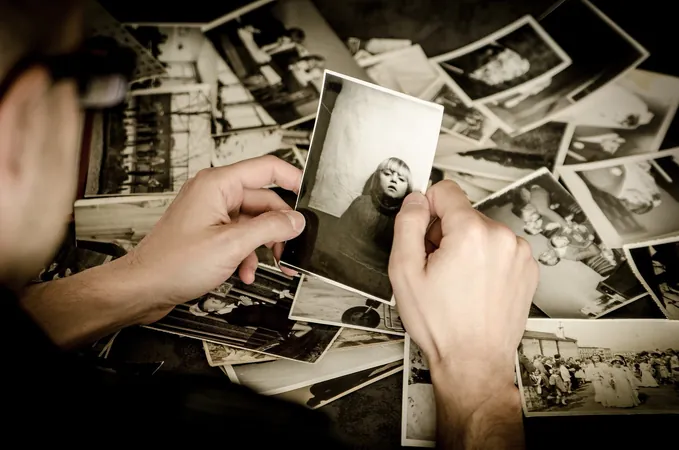
Groundbreaking Study Challenges Courtroom Assumptions About False Memories!
2025-01-07
Author: Sarah
Introduction
A groundbreaking new study led by researchers from University College London (UCL) and Royal Holloway, University of London, has dramatically altered our understanding of false memories, revealing that implanting these misleading recollections is far more difficult than previously claimed in legal settings. This research challenges long-held beliefs that have impacted crucial court cases, including historic sexual abuse trials.
Historical Context
Historically, the infamous 1995 'Lost in the Mall' study has been pivotal in numerous criminal trials, particularly those involving sexual assault allegations. This study suggested that a significant number of individuals could have false memories implanted, demonstrating that around 25% of participants erroneously recalled being lost in a shopping mall as children. This findings have been used as ammunition by defense teams, including Harvey Weinstein’s, to question the reliability of accusers' memories.
Recent Reevaluation
However, a reevaluation of the 'Lost in the Mall' study was recently conducted in 2023 by researchers from University College Cork and University College Dublin. They reported finding a higher rate of false memories—claiming that 35% of a larger sample of 123 participants recalled being lost. But a thorough analysis of this new data, published in the journal Applied Cognitive Psychology, has cast serious doubt on these results.
Critical Analysis
The analysis revealed that none of the individuals categorized as having a false memory in 2023 reported a completely fabricated memory of being lost. In fact, many did not even recall the experience of being lost at all. Half of those identified as having false memories had genuine experiences of being lost on different occasions, which muddied the waters of their recall. Moreover, many participants expressed uncertainty regarding the suggested details of the fabricated scenario, leading some researchers to argue that these testimonies would hold little value in a courtroom context.
Expert Opinions
Emeritus Professor Chris Brewin from UCL Psychology and Language Sciences emphasized the importance of being cautious when applying laboratory findings to real-life witness situations. He pointed out, 'Participants in these studies are often more cautious in what they report than the researchers interpreting the results, which raises significant concerns about how findings are utilized in the justice system.'
Study Findings
The study meticulously examined key elements of the fabricated scenario, such as being lost, crying, assistance from an elderly woman, and family reunification details. On average, those identified with false memories could confidently recall only one and a half details, while 30% could not recall any details at all. This disparity aligns with prior findings indicating that the assumptions made by investigators about false memories frequently do not correspond to the participants’ actual recollections.
Raw Data Accessibility
Lead author Emeritus Professor Bernice Andrews from Royal Holloway took an unprecedented step by making the raw data from this false memory implantation study publicly accessible, allowing for independent verification and scrutiny, a move that could redefine how memory research is utilized in legal proceedings.
Conclusion
This compelling research not only highlights the complexities surrounding memory recall but also serves as a critical reminder of the potential risks of misapplying psychological findings in the courtroom. As the dialogue around memory and justice evolves, it raises the question: how many wrongful convictions have been influenced by unreliable witness testimonies? The implications of this study could be profound, urging legal experts to rethink their approaches to witness reliability in crucial cases.



 Brasil (PT)
Brasil (PT)
 Canada (EN)
Canada (EN)
 Chile (ES)
Chile (ES)
 Česko (CS)
Česko (CS)
 대한민국 (KO)
대한민국 (KO)
 España (ES)
España (ES)
 France (FR)
France (FR)
 Hong Kong (EN)
Hong Kong (EN)
 Italia (IT)
Italia (IT)
 日本 (JA)
日本 (JA)
 Magyarország (HU)
Magyarország (HU)
 Norge (NO)
Norge (NO)
 Polska (PL)
Polska (PL)
 Schweiz (DE)
Schweiz (DE)
 Singapore (EN)
Singapore (EN)
 Sverige (SV)
Sverige (SV)
 Suomi (FI)
Suomi (FI)
 Türkiye (TR)
Türkiye (TR)
 الإمارات العربية المتحدة (AR)
الإمارات العربية المتحدة (AR)